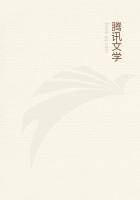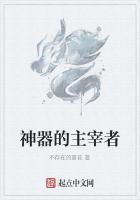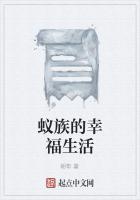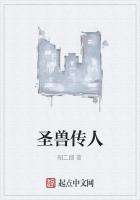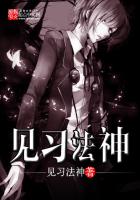``Who? Tom McChesney? I reckon he ain't got none to give.This here's from a big brave at Noewee, whar the Virginny boys was surprised.'' And he held up the one with the longest tuft.``He'd liked to tomahawked me out'n the briers, but I throwed him fust.''
``Shucks,'' said Polly Ann, pounding the corn, ``I reckon you found him dead.''
But that night, as we sat before the fading red of the backlog, the old man dozing in his chair, Polly Ann put her hand on mine.
``Davy,'' she said softly, ``do you reckon he's gone to Kaintuckee?''
How could I tell?
The days passed.The wind grew colder, and one subdued dawn we awoke to find that the pines had fantastic white arms, and the stream ran black between white banks.
All that day, and for many days after, the snow added silently to the thickness of its blanket, and winter was upon us.It was a long winter and a rare one.Polly Ann sat by the little window of the cabin, spinning the flax into linsey-woolsey.And she made a hunting shirt for her grandfather, and another little one for me which she fitted with careful fingers.But as she spun, her wheel made the only music--for Polly Ann sang no more.Once I came on her as she was thrusting the tattered piece of birch bark into her gown, but she never spoke to me more of Tom McChesney.When, from time to time, the snow melted on the hillsides, I sometimes surprised a deer there and shot him with the heavy rifle.And so the months wore on till spring.
The buds reddened and popped, and the briers grew pink and white.Through the lengthening days we toiled in the truck patch, but always as I bent to my work Polly Ann's face saddened me--it had once been so bright, and it should have been so at this season.Old Mr.Ripley grew querulous and savage and hard to please.
In the evening, when my work was done, I often lay on the banks of the stream staring at the high ridge (its ragged edges the setting sun burned a molten gold), and the thought grew on me that I might make my way over the mountains into that land beyond, and find Tom for Polly Ann.I even climbed the watershed to the east as far as the O'Hara farm, to sound that big Irishman about the trail.For he had once gone to Kentucky, to come back with his scalp and little besides.O'Hara, with his brogue, gave me such a terrifying notion of the horrors of the Wilderness Trail that I threw up all thought of following it alone, and so I resolved to wait until Iheard of some settlers going over it.But none went from the Grape Vine settlement that spring.
War was a-waging in Kentucky.The great Indian nations were ****** a frantic effort to drive from their hunting grounds the little bands of settlers there, and these were in sore straits.
So I waited, and gave Polly Ann no hint of my intention.
Sometimes she herself would slip away across the notch to see Mrs.McChesney and the children.She never took me with her on these journeys, but nearly always when she came back at nightfall her eyes would be red, and Iknew the two women had been weeping together.There came a certain hot Sunday in July when she went on this errand, and Grandpa Ripley having gone to spend the day at old man Winn's, I was left alone.I remember Isat on the squared log of the door-step, wondering whether, if I were to make my way to Salisbury, I could fall in with a party going across the mountains into Kentucky.
And wondering, likewise, what Polly Ann would do without me.I was cleaning the long rifle,--a labor I loved, --when suddenly I looked up, startled to see a man standing in front of me.How he got there I know not.Istared at him.He was a young man, very spare and very burned, with bright red hair and blue eyes that had a kind of laughter in them, and yet were sober.His buckskin hunting shirt was old and stained and frayed by the briers, and his leggins and moccasins were wet from fording the stream.He leaned his chin on the muzzle of his gun.
``Folks live here, sonny?'' said he.
I nodded.
``Whar be they?''
``Out,'' said I.
``Comin' back?'' he asked.
``To-night,'' said I, and began to rub the lock.
``Be they good folks?'' said he.
``Yes,'' I answered.
``Wal,'' said he, ****** a move to pass me, ``I reckon I'll slip in and take what I've a mind to, and move on.''
Now I liked the man's looks very much, but I did not know what he would do.So I got in his way and clutched the gun.It was loaded, but not primed, and I emptied a little powder from the flask in the pan.At that he grinned.
``You're a good boy, sonny,'' he said.``Do you reckon you could hit me if you shot?''
``Yes,'' I said.But I knew I could scarcely hold the gun out straight without a rest.
``And do you reckon I could hit you fust?'' he asked.
At that I laughed, and he laughed.
``What's your name?''
I told him.
``Who do you love best in all the world?'' said he.
It was a queer question.But I told him Polly Ann Ripley.
``Oh!'' said he, after a pause.``And what's SHE like?''
``She's beautiful,'' I said; ``she's been very kind to me.
She took me home with her from the settlements when Ihad no place to go.She's good.''
``And a sharp tongue, I reckon,'' said he.
``When people need it,'' I answered.
``Oh!'' said he.And presently, ``She's very merry, I'll warrant.''
``She used to be, but that's gone by,'' I said.
``Gone by!'' said he, his voice falling, ``is she sick?''
``No,'' said I, ``she's not sick, she's sad.''
``Sad?'' said he.It was then I noticed that he had a cut across his temple, red and barely healed.``Do you reckon your Polly Ann would give me a little mite to eat?''
This time I jumped up, ran into the house, and got down some corn-pone and a leg of turkey.For that was the rule of the border.He took them in great bites, but slowly, and he picked the bones clean.
``I had breakfast yesterday morning,'' said he, ``about forty mile from here.''
``And nothing since?'' said I, in astonishment.
``Fresh air and water and exercise,'' said he, and sat down on the grass.He was silent for a long while, and so was I.For a notion had struck me, though I hardly dared to give it voice.
``Are you going away?'' I asked at last.
He laughed.
``Why?'' said he.

